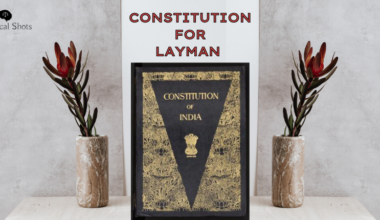In the debate over dowry versus alimony, it is all about money. People claim that men exploit women a lot, and that is the justification for a wife having unfettered rights over maintenance and alimony. However, we cannot deny the fact that a person is not a saint or sinner based on gender, or women would be declared the saints already! It varies from person to person, and there could be circumstances when even men could be financially dependent upon their wives. So? Can a husband claim maintenance from wife? That’s an important question to ask, but does the law answer it in a positive way? Let’s find out in what circumstances can the Court pass orders against a wife to pay maintenance to the husband.
Maintenance Laws in India – Focus on Matrimonial Provisions
Given below is a compilation of different laws for maintenance in India with a focus upon marital relations. The ultimate question to be answered hereunder is “Can a husband claim maintenance from wife?”. Since things are more specific to personal laws and secular laws which a person is subject to, looking at them one provision at a time helps clear the clouds.
Maintenance under Bharatiya Nagarik Suraksha Sanhita
There is a secular provision under the BNSS wherein multiple relations can seek maintenance. A person, regardless of his/her religion, can seek maintenance under BNSS. The same was enveloped under Section 125 of the Criminal Procedure Code. It pertains to Order for maintenance of wives, children and parents. Thus, maintenance to husband under BNSS is out of question. No husband can approach the Court for the wife to pay maintenance to the husband.
Maintenance under Hindu Marriage Act
Section 24 of the HMA lays about Maintenance pendente lite and expenses of proceedings. It states that in case “either the wife or the husband” has insufficient independent income to support himself/herself or expenses of the proceedings, then the Court may order the other spouse to pay maintenance. It means that on application of the husband unable to maintain himself, the Court can order a Hindu wife to pay maintenance to the husband.
Section 25 of HMA talks about Permanent alimony and maintenance. Here again, either husband or wife can apply to the Court to seek maintenance from the spouse. It could be a one time gross sum, monthly or periodical payments, as the case may be. In such cases, the Court is bound to look at the income and property owned by both the parties to decide a sum. Such a payment can also be secured by a charge on the immovable property of the respondent.
Maintenance under Muslim Laws
In Shariat Laws, the basic approach is that the husband is liable to maintain his wife during the subsistence of marriage. Even if he marries again and has more than 1 wife, a Muslim husband is liable to treat them equally in terms of food, clothing and lodging. While personal law lays the duty of husband to pay maintenance to his wife during Iddat period, a special law is codified in India to ensure maintenance to Muslim women beyond the Iddat period. They can also seek maintenance under Section 144 of the BNSS.
However, nowhere does the Sharia lay about a wife to pay any maintenance to her husband. Speaking about financial liabilities, it is the husband who is responsible for Mehr (dower), maintaining her during marriage, and paying maintenance till the completion of Iddat. Hence, if you ask Can a husband claim maintenance from wife in Muslim personal law, the answer is a clear NO.
Maintenance under Christian Marriage Laws
Section 37 of the Divorce Act, 1869 lays about permanent alimony and maintenance. However, the provision is gender specific, wherein, only the wife is entitled to get maintenance from her husband. The same may stop in case of husband’s inability to pay, and be revived later given the circumstances of each case.
Therefore, what can be seen here is that the answer to “Can a husband claim maintenance from wife?” is a NO! A Christian husband is not entitled to maintenance. The Court cannot order a Christian wife to pay maintenance to husband.
Parsi Marriage Laws
The Parsi Marriage and Divorce Act of 1936 governs marriages of Parsi couples. Section 39 of the Act lays about alimony during pendency of litigation, while Section 40 of the Act states the law on Permanent alimony and maintenance. For disputes related to marriage between Parsis, either the wife or the husband can approach the Court for interim maintenance, or permanent alimony or maintenance, as the case may be. Unlike secular laws, the Parsi personal law upholds gender neutrality and entitles both men and women, unable to maintain themselves, to seek maintenance from their able spouse.
Maintenance under Special Marriage Act
As we know, the Special Marriage Act is applicable to those who are not governed by any personal laws. Court marriages are particularly governed by the SMA. Section 37 of the same deals with permanent alimony and maintenance. However, unlike the Hindu Marriage Act, maintenance under the Special Marriage Act entitles the wife to get maintenance, and the husband as a giver.
Thus, while deciding a matrimonial dispute under any provision of the Special Marriage Act, the Court cannot direct the wife to pay maintenance to husband. The husband may or may not be ordered to pay maintenance to his wife, based on the specific circumstances.
Conclusion
As of what we see, the secular laws under BNSS or Special Marriage Act do not provide an opportunity for a husband to seek maintenance from his wife. No personal laws for Christians or Muslims entitle a husband to maintenance. Hindu and Parsi laws are exclusive ones to extend the right to maintenance to a husband along with the wife, if he has insufficient means of income to meet his needs. However, in practice, what is seen is that even for Hindu or Parsi husbands, Courts rarely allow maintenance. In every religion, a man, a husband is seen as a provider. For a husband to get maintenance from his wife, he has to prove the inability to bear his own expenses before the Court.








